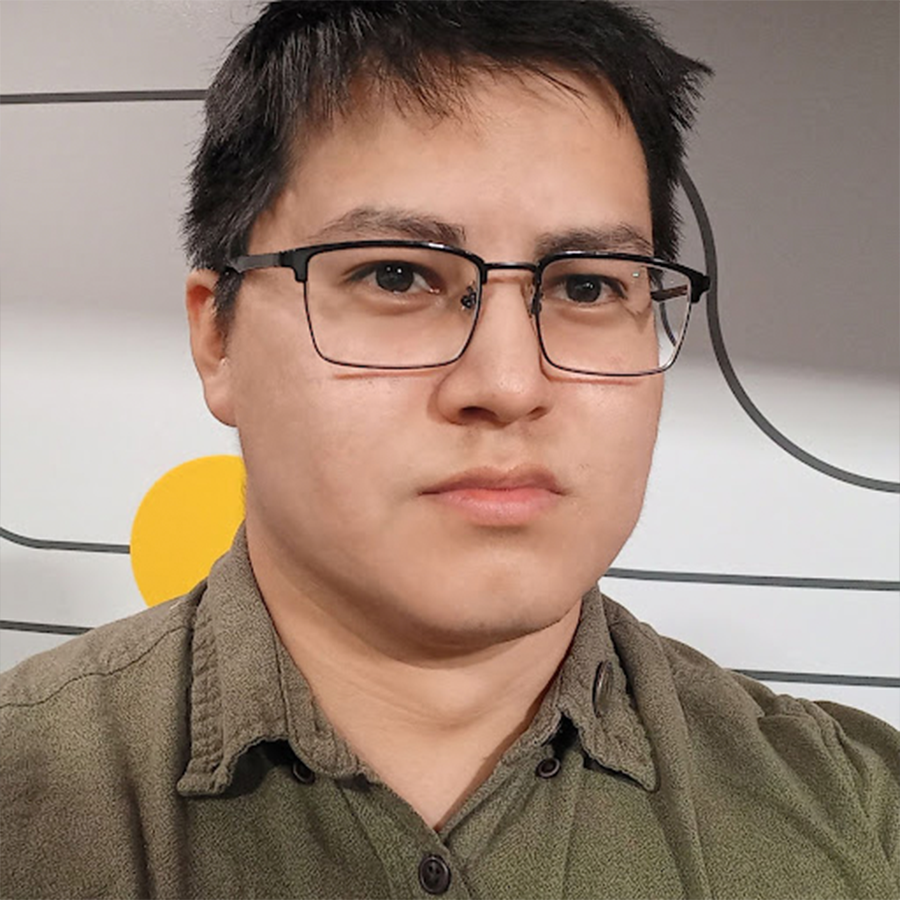Onri Jay Benally

How did you become interested in STEM?
I was a carpenter for over 10 years, trained by my grandmother Nancy who was a skilled polymath. My passion for building things by hand carried into my hobby as a 12-year-old, where I repaired and experimented with vacuum tube amplifiers and power inverters. My homeland, the Navaho Nation (Diné Bikéyah), has a nuclear history as well. Our abundance of uranium, deep in the mountains and hills on Navaho land, led to heavy extraction for building the US nuclear arsenal during the Cold War era. I learned about the physics of ionizing radiation in middle school to understand the hazards and uses of uranium. That is how I became interested in the utility of physics. Many of these cautions surrounding uranium were topics of local public health and safety in Red Valley, Arizona, a community in my region. Through the lens of physics, it was easier to build my own machines and fix them. So, I was recruited to build battery electric vehicles and robots at my first university job at Utah State University. That's how I became officially involved and employed in STEM as a teenager. Now, I mentor PhD students in nanotechnology fabrication at work.
Who are your mentors?
My first mentor was my maternal grandmother, Nancy E. Benally. She trained me in mathematics, carpentry, farming, silversmithing, blueprinting, and linguistics. Ever since I learned to communicate with words, she began teaching me about the world, taking me everywhere she went. My second mentor is my boss, Distinguished McKnight University Professor Jian-Ping Wang. He is the Director of the Center for Spintronic Materials for Advanced Information Technologies and is a Robert F. Hartmann Chair. While recognizing the importance of my native culture, he encourages me to explore my interests at work, where I built nanomagnetic devices, quantum chips, and brain chips. My third mentor is Dr. Delin Zhang, a former postdoctoral researcher on my research team. We worked together for years in the quantum spintronics lab when I joined in 2018. We developed hundreds of nanomagnetic chips over the years for our research and that is one thing that fueled my interest in quantum technology.
What words of wisdom would you give to students interested in STEM?
Feel free to explore the resources available, especially if you have access to equipment. Try to also explore all the mistakes you can make along the way. These mistakes are critical for developing a growth mindset. Mistakes are part of the experimental process, so don't feel discouraged. As you grow, do your best to tell a story about your work. Stories are what impacts people the most and they are an opportunity to expand on your communication skills with the world.
Anything else you would like to share?
My career path is very unconventional. I never really expected to become a scientist in the quantum research field, but it happened as a result of keeping myself busy with my passion for designing and building things. It seemed like carpentry was going to be my life's work from the beginning and now it has changed to something still useful. So, if you ever feel like you are losing focus, just take a breath and stay busy.